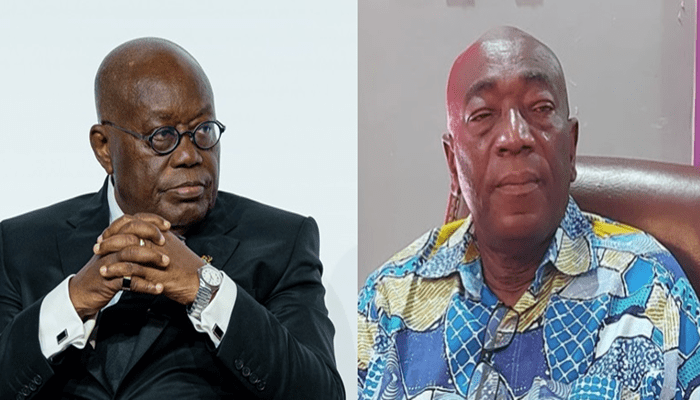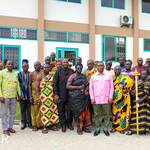Galamsey fight: Akufo-Addo engages Organised Labour, Catholics set for prayer walk
Ahead of planned protests by Organised Labour and the Ghana Catholic Archdiocese of Accra, President Nana Addo Dankwa Akufo-Addo has ramped up stakeholder engagements in an effort to address the ongoing illegal mining crisis, known locally as galamsey.
With pressure mounting from various sectors of society, the President held a crucial meeting with Organised Labour at the Jubilee House in Accra on October 3, signaling the government’s commitment to finding a sustainable solution to the devastating environmental and social effects of illegal mining.
A statement issued by the Ministry of Information thanked Organised Labour for attending the meeting, stating, “Government is committed to engaging all stakeholders in pursuit of sustainable mining and environmental protection.”
However, labour unions have grown increasingly dissatisfied with what they describe as the government’s “lukewarm” attitude toward tackling illegal small-scale mining, and a nationwide demonstration is set to begin on Thursday, October 10.
The following day, Friday, October 11, 2024, the Catholic Archdiocese of Accra, in partnership with the Conference of Major Superiors of Religious, Ghana, and Catholic Lay Faithful and Professionals, is set to lead an Environmental Prayer Protest Walk Against Galamsey
In the lead-up to the strike, the Concerned Citizens Against Illegal Mining group concluded a three-day protest under the banner FreeTheCitizens, and civil society group Democracy Hub organized two days of demonstrations that resulted in the arrest and remand of 54 people accused of breaching the law.
The strike by labour unions is expected to intensify the call for the government to take decisive action against galamsey.
Catholic Bishops’ Conference
The Ghana Catholic Bishops’ Conference has also joined the growing chorus of voices calling for an end to illegal mining.
In a statement released on September 11, the Bishops urged the government to employ all available resources to combat galamsey and ensure that those responsible are held accountable.
The Conference highlighted the urgent need to address the destruction of water bodies, farmlands, and entire communities, warning that the environmental and social harm caused by galamsey could have long-term consequences for the country’s future.
Stakeholders urged to collaborate on a unified response
In their statement, the Bishops called for a unified approach, urging all key stakeholders—government, civil society, the media, traditional leaders, and religious bodies—to collaborate in tackling illegal mining.
They also stressed the need for alternative livelihood programs for those engaged in galamsey, acknowledging that economic hardship has driven many to participate in illegal mining.
Govt efforts to combat galamsey under scrutiny
President Akufo-Addo’s administration has made several attempts to curtail illegal mining activities, including the establishment of the Inter-Ministerial Committee on Illegal Mining (IMCIM) and a nationwide ban on all small-scale mining in 2017.
Despite these efforts, there has been a recent resurgence in galamsey operations, leading to renewed criticism from environmental groups and researchers.
Security operations aimed at confiscating mining equipment and halting illegal activities have been implemented, but the persistence of galamsey has cast doubt on the effectiveness of these measures.
The Bishops’ Conference and other groups have called for the immediate reclamation of lands and restoration of water bodies affected by illegal mining.
- Tuesday, May 6, 2025 Newspaper Headlines - 6 May 2025
- Mahama unveils Code of Ethics for appointees - 5 May 2025
- No system breach, MoMo is safe, secure- MTN - 5 May 2025




